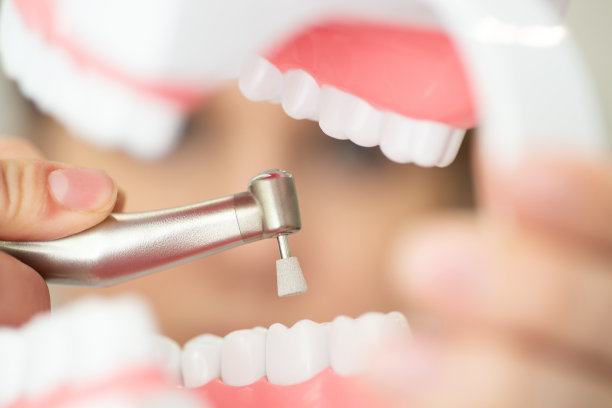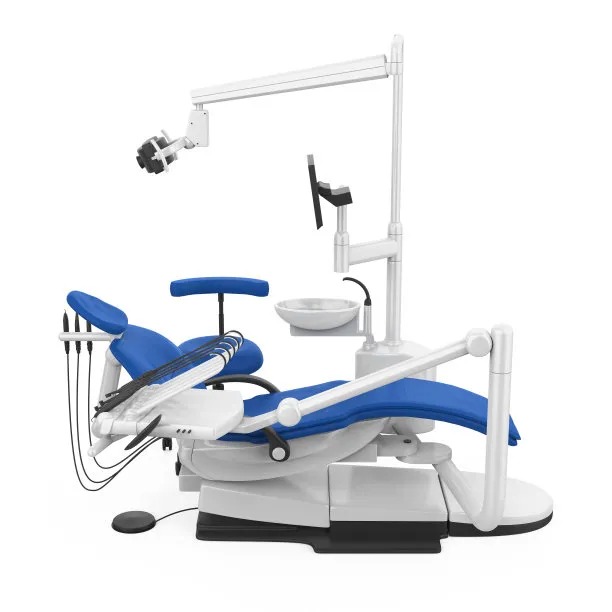Summary: Preparing for a dental filling procedure is crucial to ensure both optimal results and safety. This article outlines essential precautions that patients should take, focusing on four key areas: understanding the procedure, discussing concerns with your dentist, following pre-appointment instructions, and ensuring proper post-treatment care. By adhering to these guidelines, patients can enhance their experience, minimize discomfort, and achieve lasting results.
1. Understanding the Dental Filling Procedure

Before undergoing a dental filling procedure, it is paramount to familiarize yourself with what it entails. Dental fillings are used to restore the function and integrity of a tooth that has been compromised by decay or damage. Knowing the steps involved helps to alleviate anxiety and sets realistic expectations for the treatment.
The procedure generally starts with the dentist administering anesthesia to numb the affected area, followed by the removal of decayed material from the tooth. Once the tooth is prepared, the filling material—whether composite resin, amalgam, or another type—is placed and shaped to match the natural contour of the tooth.
Understanding potential risks such as sensitivity or the possibility of requiring a follow-up visit also aids in preparing mentally for the process, thus reducing stress on the day of the appointment.
2. Communicating with Your Dentist
Open communication with your dentist is crucial for a successful dental filling experience. Discussing your medical history, including allergies, existing health conditions, and previous dental experiences, helps the dentist tailor the treatment to your specific needs. This information is vital for assessing potential risks associated with anesthesia or the materials used.
Additionally, express any concerns or anxieties you might have regarding the procedure. Dentists can provide reassurance, explain pain management options, and highlight the steps they take for patient safety. When patients feel heard, they are more likely to be cooperative and relaxed, which benefits the overall process.
Ask questions about the filling materials and the longevity of the dental work, ensuring that you have a clear understanding of what to expect both during and after the procedure. Such proactive engagement fosters a collaborative relationship between you and your dentist, enhancing your overall experience.
3. Following Pre-Appointment Instructions
Before the procedure, adhering to any pre-appointment instructions given by your dental office is essential. These guidelines might include dietary restrictions, such as avoiding certain foods or beverages on the day of the appointment, particularly if sedation is involved.
It is also advisable to arrange transportation if you will be receiving sedation, as it may impair your ability to drive afterward. Moreover, planning your schedule around the appointment can help—allowing time for any unexpected complications and providing a more relaxed transition into the procedure.
Preparing emotionally is equally important. Setting aside time to relax or practice stress-reducing techniques such as deep breathing can help you enter the dental office with a calm mindset, significantly improving your experience.
4. Ensuring Proper Post-Treatment Care
After a dental filling procedure, proper post-treatment care is crucial for recovery and ensuring the filling’s longevity. Your dentist will likely provide specific aftercare instructions that you should follow diligently. This may include recommendations such as avoiding hard or sticky foods for a period, as well as guidelines for oral hygiene practices.
Monitoring the treated area for unusual pain or discomfort is essential as well. If you experience heightened sensitivity or prolonged discomfort, contact your dentist immediately to address any issues before they escalate.
Additionally, follow-up appointments may be necessary to assess the fillings integrity and the tooths health. Regular dental check-ups play a significant role in monitoring your overall oral health and the success of the treatment, helping to catch potential problems early.
Summary:
In conclusion, preparing effectively for your upcoming dental filling procedure can significantly enhance your experience and outcomes. By understanding the procedure, effectively communicating with your dentist, adhering to pre-appointment instructions, and following post-treatment care, you are setting the foundation for both optimal results and safety.
This article is compiled by Vickong Dental and the content is for reference only.
Vickong Dental
Vickong Dental is a large medical group established in Hong Kong in 2008 by professors from well-known medical universities in Guangdong and Hong Kong, as well as medical doctors from key national '985' universities (including Master's supervisors and senior professors). The chain of branches brings together expert dentists with PhDs and Master's degrees from Hong Kong and Mainland China, committed to providing high-quality dental treatment.
"Vickong Dental Practices the University Motto of 'Healing and Serving Society,' with a Stable Operation for Sixteen Years. It Has Been honored with Hong Kong Enterprise Leaders's Choice,' and is a Global Trusted Implant Center for the Nobel Implant System. Recommended by Hong Kong Metro Broadcast and Guangdong Television, it Serves Customers from Over Thirty Countries and Regions, Gaining the Trust and Favor of Citizens from the Guangdong-Hong Kong-Macau Greater Bay Area and Surrounding Cities.

Thousands of customers' unanimous praise
The most recognized and highly recommended dental service by customers in the Guangdong-Hong Kong-Macau Greater Bay Area
We Ensure You Receive Detailed Care and Attention Here
Hong Kong standards, Shenzhen prices, Your Trusted English-speaking dentists

Vickong Dental Medical-Grade Instrument Disinfection Process
Vickong Dental Medical-Grade Instrument Disinfection Process

Vickong Dental Chain: A Warm and Comfortable Environment for Treatment






Appointment Hours

Q&A
Why choose Vickong Dental?
Vickong Dental practices the university motto 「Medicine to Benefit Society」, with each branch bringing together highly qualified dentists with doctoral and master’s degrees from Hong Kong and the Mainland, and has maintained seventeen years of steady operation。Recipient of 「2024 Hong Kong Enterprise Leaders Brand」, 「2025 Hong Kong Enterprise Leaders Brand」, a Nobel Biocare Global Trusted Implant Center, and a brand recommended by Metro Radio Hong Kong and Guangdong TV。
To date, we have served customers from more than thirty countries and regions,earning exceptionally high word-of-mouth recognition and trusted recommendations from residents across the Guangdong-Hong Kong-Macao Greater Bay Area and surrounding cities
We have eight major branches in Zhuhai、Shenzhen,and a consultation and service assurance center in Hong Kong,so you can book a free consultation at any time for any questions,which is very reassuring.
If I do not accept the quotation after the CT scan, will I be charged??
No! As long as the actual treatment has not started, you will not be charged any fees.
Will there be any additional charges during the treatment process?
No, there won’t be any additional charges. Before treatment begins, we will clearly explain the treatment plan and its corresponding fees. Only after the patient agrees and signs the consent form will we proceed with the dental service.
Can I pay in Hong Kong dollars?
Yes. Vickong Dental accepts payment in Hong Kong dollars. The amount will be converted based on the exchange rate of the day, and the applicable rate will be clearly communicated to you in advance.
Can I reschedule my appointment at any time?
Yes. Please contact us via **WeChat** or **WhatsApp** as early as possible, providing your original appointment time and details, along with your preferred new date and time slot for rescheduling.













